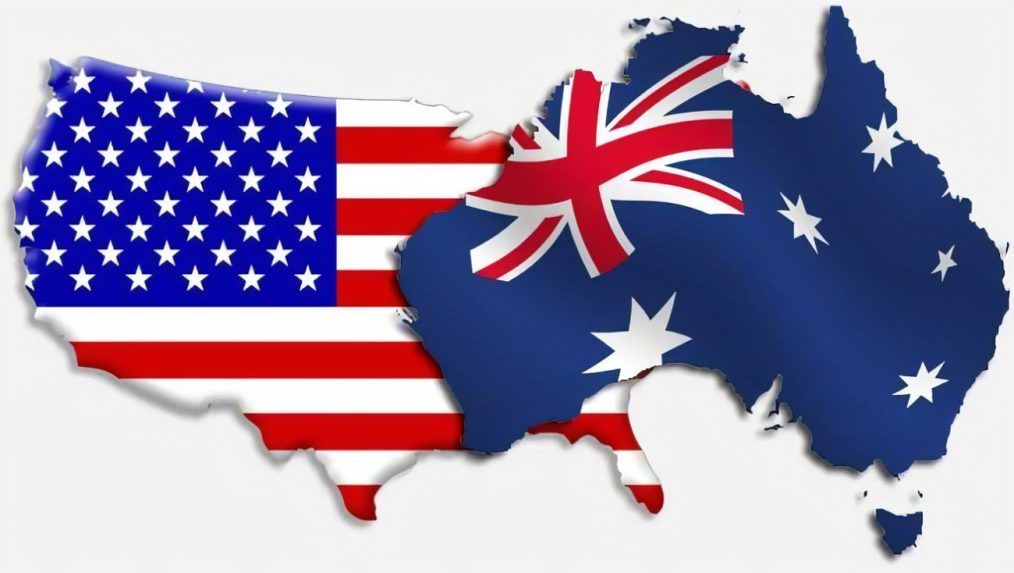ED: Below is a Macrobusiness article titled ‘Australian dollar 40s in 2025?’ I know that many members travel O/S … Here’s a simplified summary of the article:
The US Dollar (USD) is expected to keep getting stronger due to solid US economic growth, rising interest rates, and trade policies like tariffs. Recent data and policy shifts have already pushed the Dollar higher than anticipated. Analysts predict another 5% increase in the USD’s value over the next year, driven by strong US performance and new tariffs.
For Australia, the outlook is weaker. The Australian Dollar (AUD) is expected to fall, possibly below 50 US cents in the coming years. This is because of slowing wage growth, economic policies, and dependency on commodities, which are vulnerable to China’s economic slowdown. The contrast between the US’s strong economy and Australia’s weaker position, particularly in productivity and inflation control, amplifies this trend.
The author, David Llewellyn-Smith, suggests that political and economic decisions in Australia, such as fiscal austerity or rate cuts, could further weaken the AUD. If global factors, like slowing demand for Australian resources, worsen, the AUD could face significant challenges into 2026.
Australian dollar 40s in 2025?
Monday 13 January 2025
Goldman is upgrading the US dollar.
USD: All systems still go; upgrading our Dollar forecasts.
In our 2025 Outlook, we wrote that we expected the Dollar to be “stronger for longer” because of a combination of solid US growth, continued support for capital inflows, and more protectionist policies.
Since then, the Dollar has appreciated even faster than we expected.
This has been largely on the back of a shift higher in US policy rate expectations, which tends to be the most supportive environment for the currency.
Looking ahead, the critical questions are to what extent these moves will be validated by the incoming data, and whether they already incorporate our expectations for policy shifts in the coming year, particularly higher tariffs .
While we acknowledge that FX market participants are clearly expecting some degree of tariff policy changes, and it is difficult to disentangle the drivers of recent moves, we maintain that there is more Dollar strength ahead.
In our view, there are three key considerations.
First, it is challenging—if not impossible—for FX markets to fully price tariff risks ahead of time because movements in the CNY fix will be critical for the size and composition of the broad market reaction.
Second, our models assume a negative growth response to these trade policy shifts, but so far the market has instead upgraded the US growth view since the election.
Third, and most timely today, we believe that much of the recent Dollar strength reflects the surprising resilience in the US economy and shifting policy expectations.
We expect the Dollar to rally by about 5% over the coming year on the realization of new tariffs and continued US outperformance.
Even with this upgrade, we still see the risks tilted towards more Dollar strength.
Surprisingly, GS has not downgraded the AUD at the same time. If DXY rises 5% or more, then AUD is almost certain to fall just as much, especially since China tariffs and CNY weakness are the key variables.
As well, while the US interest rate outlook is firming up, the Australian is weakening. The key difference is mass immigration and wage growth that drives services inflation.
US wage growth is sitting firmly around 4% while Australia’s is 3.5% and falling fast. The US is about to evict millions of cheap foreign workers, while Australia is only pretending to cut back on the Indian inundation.
Australia’s labour-market expansion growth model has a much lower neutral interest rate than most economists realise, especially versus a traditional business investment growth model like the US.
Amusingly, the failure of productivity growth in the former versus the latter leads classic economic models to predict worse inflation for Australia.
However, it simply doesn’t work that way in reality. Lower wage growth from the permanent labour supply shock weighs heavily on services inflation in Australia versus the US. This is made worse by the stupid RBA never learning and running too tight initially.
Goods inflation will go the other way as US imports get cheaper and Australian less so. But tariff displacement of Chinese goods seeking new markets should offset any impact from a weak AUD for inflation.
So, how weak will the AUD be in 2025? For the past eighteen months, I have had a forecast of reaching below 50 cents in the next few years.
This was based upon the notion of a rerun of the late-1990s scenarios of a struggling Asia centred on Chinese weakness driving commodity prices lower versus a runaway US dollar based on US tech exceptionalism.
If anything, the looming scenario is even stronger after the US election.
I’d be surprised to see AUD fall so far as the 40s this year, but if the LNP were to win the election and deploy fiscal austerity-chasing rate cuts, then AUD could fall deep into the 50s.
And with the Pilbara killer coming by year’s end, all bets are off for 2026 AUD weakness.












